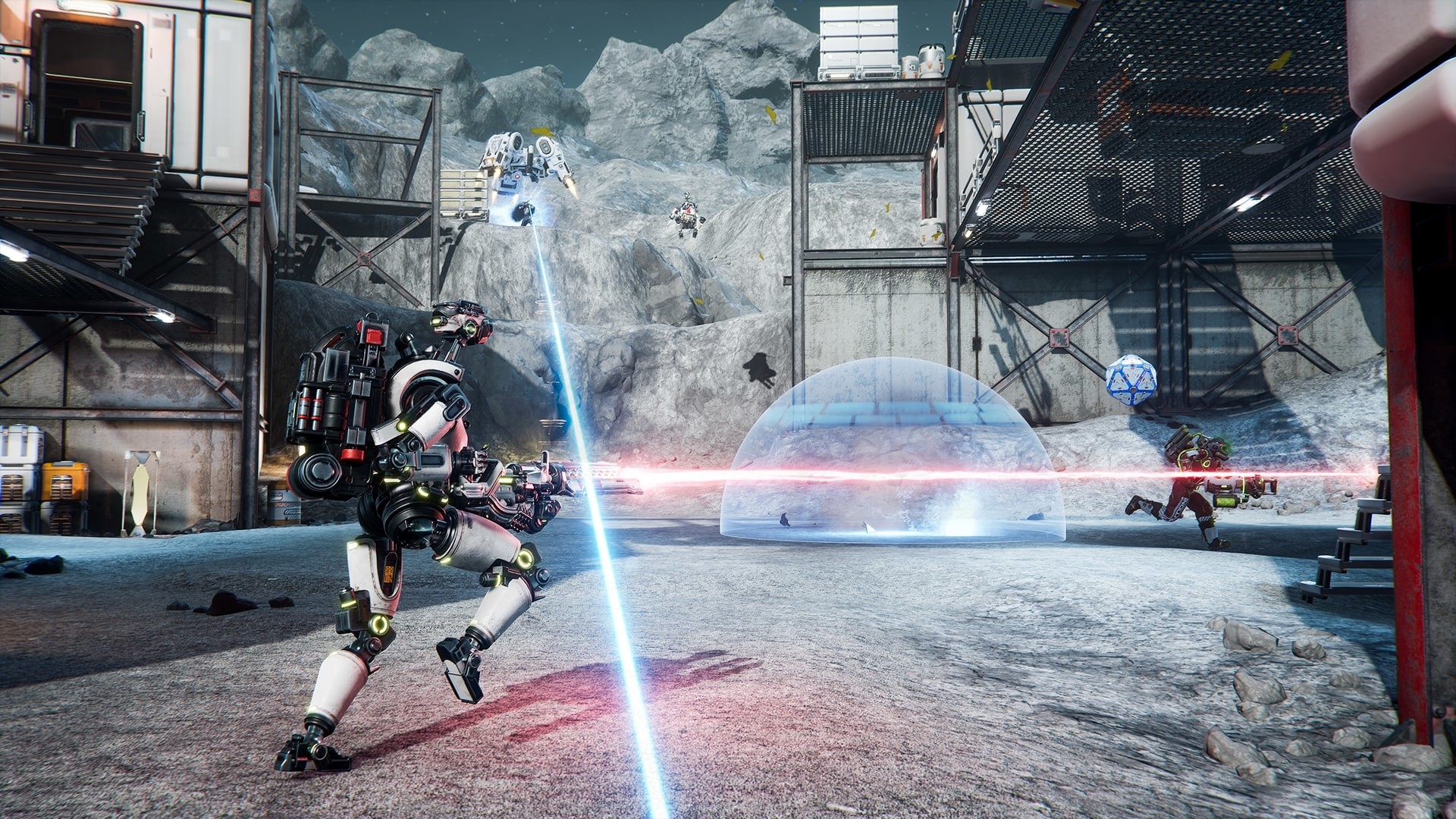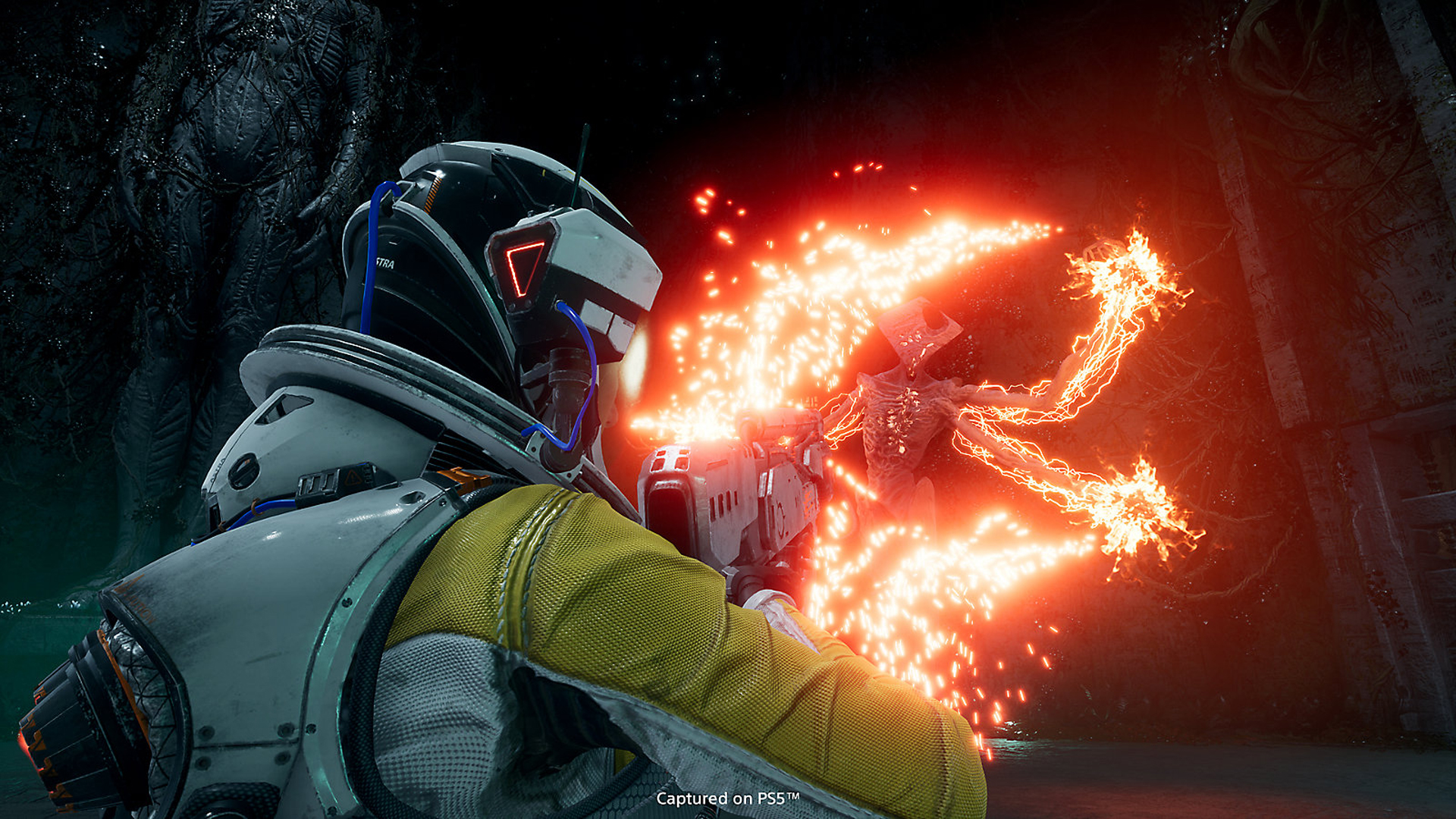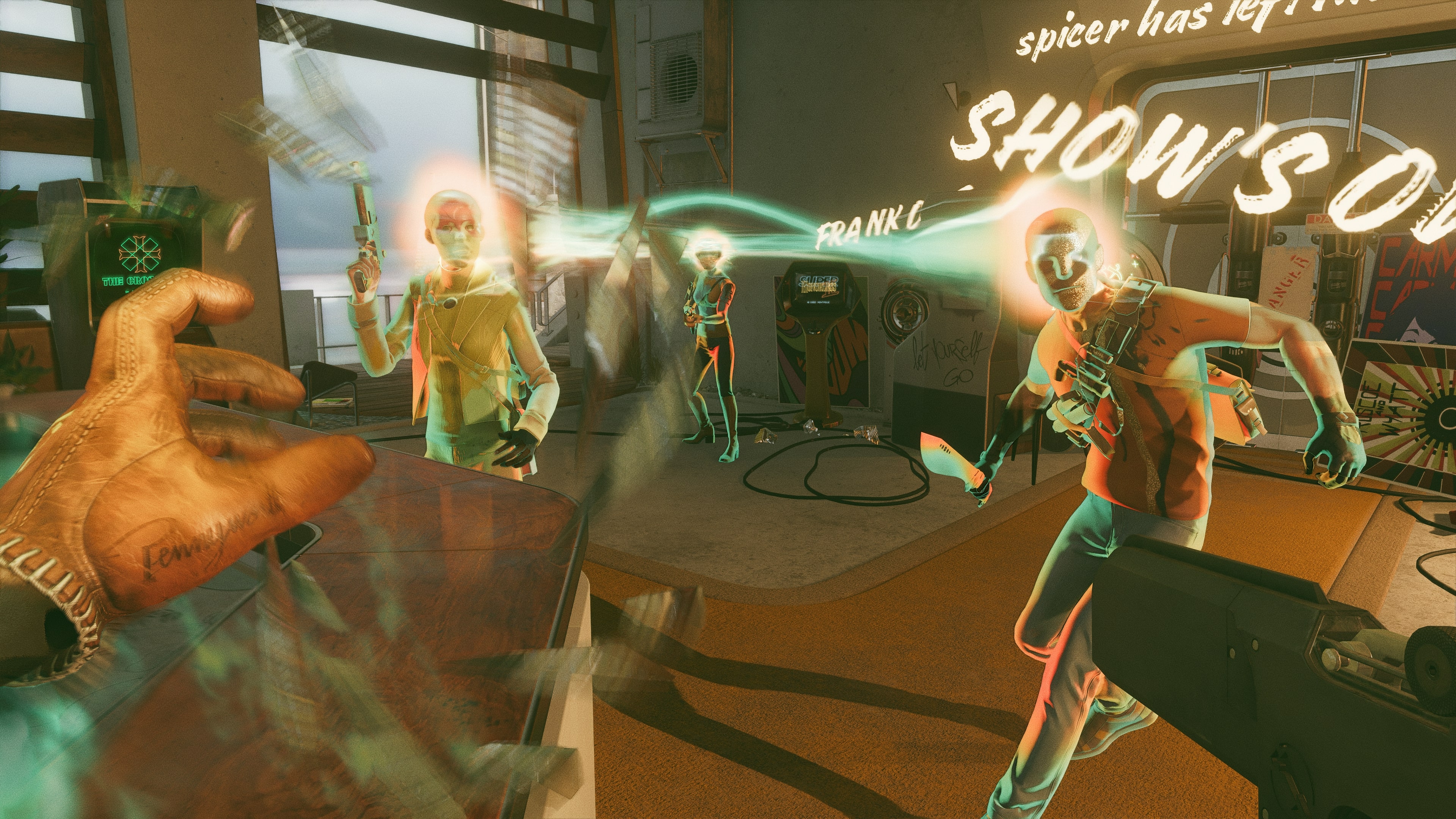From Deathloop to Returnal, how 2021 became the year of the video game time loop
Closed circuit: Why everyone's making video games about time loops

Video games are nothing if not disciples to the zeitgeist. Those who were keeping up with the industry almost a decade ago will remember that 2013 was declared the Year of the Bow, after dozens of protagonists suddenly appeared to have graduated from archery school with the highest possible distinction. Three years later, Overwatch kicked off a wave of hero shooters, shortly before PlayerUnknown's Battlegrounds spawned an entirely new genre of battle royale.
These trends range from big picture game-changers (Destiny's live-service storytelling) right down to the nitty gritty of UI design (Destiny's cursor-based menus), alongside more abstract concepts that inspire new waves of creativity. You only have to look to 2021, for example, to find four completely different games centred around one unifying idea; the time loop.
The concept of Groundhog Day isn't exactly new territory for video games (2018 saw the release of Minit and Outer Wilds, to name just two early examples), but its presence across the slate of 2021's titles is enough to make you wonder why so many developers have suddenly taken to it at the start of this new generation. In a year when time itself has slowed to a standstill for many of us, then, where has this obsession with repetition originated from?
No time like the present


Subnautica: Below Zero shows why not all survival games should front-load their storytelling
"I think it's almost like a Hollywood trend," says Ratloop Games' James Anderson of the time loop's proliferation. "A few movies like Edge of Tomorrow came out, and those things seed ideas into the games industry, and then certain game ideas feed back into the film industry as well. So it's kind of like a two way street. But I think given the fact that there were a few films that came out with this dramatic time loop a while ago, it then spawned these video games later on down the track."
Ratloop's upcoming multiplayer shooter, Lemnis Gate, is one such game; a turn-based FPS where every turn takes place in a time loop, with each subsequent run introducing a new variable to the combat arena. For the studio, the idea generated from the need to stand out as a mid-tier title amongst its larger competitors in the genre, as Anderson explains.
"We wanted to bring something innovative to the table because we're an indie studio," he tells GamesRadar+. "So we needed a gameplay hook or something that brings Lemnis Gate into the spotlight. We really tried to bring a twist that fundamentally modified the way that a first person shooter would be played, drawing on those old school design approaches from that era when games weren't really defined by genres."
Lemnis Gate's multiplayer firefights are entirely their own thanks to the game's unique brand of circular warfare, slowing down the traditional dynamics of an online shooter for an experience that's far more strategically oriented; less team deathmatch, more hyper violent chess.
Weekly digests, tales from the communities you love, and more

But time loops aren't just being used to innovate gameplay, either; PS5 exclusive Returnal is the first Housemarque project developed with a dedicated narrative team, and the game's looped setup was the catalyst that inspired the studio to dive headfirst into storytelling territory.
"Returnal's dark sci-fi time loop setup was so exciting narratively for us because Selene, our deep space scout repeating the crash, allows us to add lots of hidden layers narratively that are uncovered through repetition," narrative director Gregory Louden told GamesRadar earlier this year. "The cyclical nature of the narrative design means the more you push forward, the more you discover Selene. What does the cycle do to someone? What is the planet's history? Why are things beyond Selene's comprehension appearing here?"
As a roguelike, Returnal's time loop narrative fits perfectly with the structure of its play, as Selene is resurrected back at her ship after every death, only equipped with a little more knowledge about the planet she's crash landed onto. If that cycle sounds familiar, that's perhaps because it invokes a wider truth about the medium itself; what is any video game if not a time loop, in which the player resets and replays the same experience after every death, defeat, or power down?
With that in mind, maybe we shouldn't be asking why developers are suddenly obsessed with time loops, and instead wondering why it's taken this long for the device to finally surface to the foreground of our interactive stories.
Circle work

While Returnal takes place across an entire alien planet, 12 Minutes narrows the setting of its time loop right down to a single apartment, viewed from the top-down perspective as our unnamed protagonist experiences the same titular period of time over and over again. For creator Luis Antonio, the circular structure of his indie narrative adventure game was never the starting point for 12 Minutes, but rather an outcome for the kind of story he wanted to tell.
"I didn't set out saying 'I want to create a narrative that goes around a time loop.' That just came out of the exploration of the content itself," he explains. "I didn't know this would become a narrative game. It's not even something that I was a super fan of. I think dialogue is very tricky and as a designer, I like to give you interactions with characters, but it's hard to tell you what you should be saying. So creating a narrative around this, I think it's pretty challenging."
If Antonio's turn towards the time loop was somewhat coincidental, the opposite can be said for Deathloop; Arkane's upcoming murder puzzle sim which tasks players with breaking the cycle of a recurring, blood-splashed 24 hours on the modern day Gamorrah of Blackreef Isle.
Creative director Dinga Bakaba says that the cyclical structure was about answering two key questions for the studio to push the parameters of the immersive sim genre it's been operating in for over two decades: "Is there a game structure that could encourage people to build that familiarity with the spaces, so that by the end of the game they feel like experts, the same way you might in a Counter-Strike map? And is there a way to do that but still tell an interesting story with character development?".

"We tried to bring a twist that fundamentally modified the way that a first person shooter would be played."
James Anderson
Arkane thus hopes that its time loop encourages players to become a master of the environment in which they find themselves prisoner, memorising the intricacies of Blackreef Isle to pull off the perfect 'run', and kill all eight Visionaries that are keeping protagonist Colt stuck in the cycle. As for the story that Bakaba refers to, the studio is understandably keeping the true nature of Colt's recurring nightmare hidden until launch, but suffice to say that every new run will bring further revelations that gradually uncover Blackreef's biggest secrets.
The diversity within even just this small handful of titles – from Kubrickian point-and-click adventure games to arcade-infused roguelikes – exemplifies just how malleable the time loop is as a platform for inspiring developers in storytelling, gameplay, and beyond. That helpfully avoids the dangers of oversaturation, where every time loop game looks the same, but that doesn't mean studios should pursue the idea purely for the sake of it. For games like 12 Minutes, the time loop structure surfaced organically through the development of its story, whereas others, such as Deathloop, the cycle was a statement of intent for the studio to push its ambitions higher than ever.
Unlike the events of Deathloop, however, video games' fascination with the concept isn't at risk of repeating itself forever. Developers will inevitably iterate, break the mould, and subvert expectations, playing around with time beyond the boundaries of a cyclical structure. The time loop may be spiralling around industry circles right now, but it won't be long before the next big thing in video games breaks its cycle.
For more, check out the best FPS games to play right now, or watch more of our Deathloop preview in the video below.
I'm GamesRadar's Features Writer, which makes me responsible for gracing the internet with as many of my words as possible, including reviews, previews, interviews, and more. Lucky internet!



